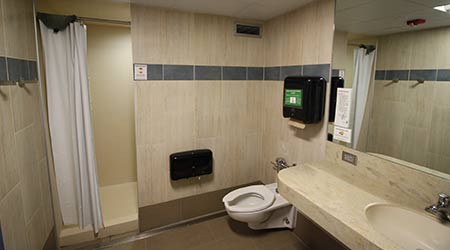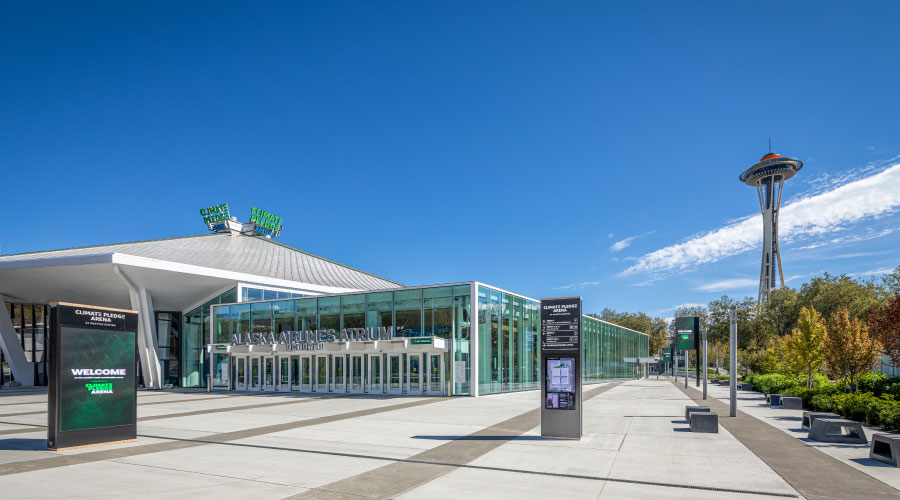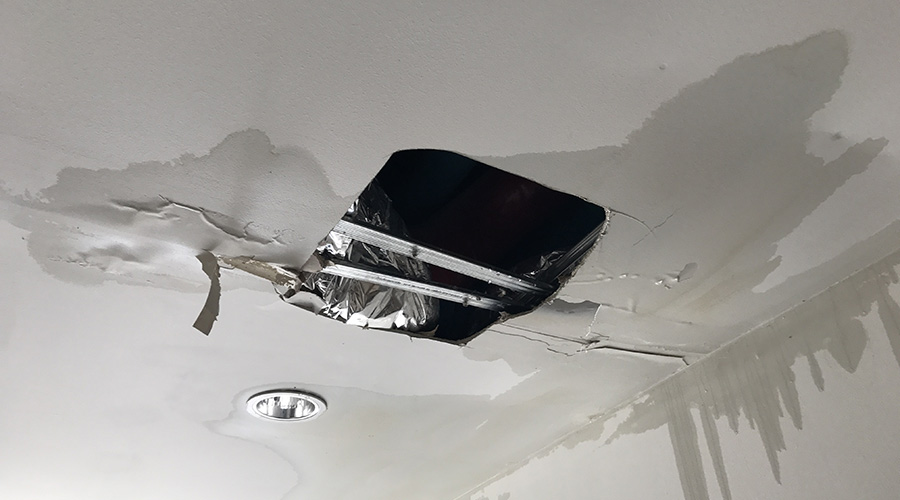 At Ithaca College, individual restrooms replaced community-style facilities, and the number of ADA-compliant restrooms (not shown) was increased.
At Ithaca College, individual restrooms replaced community-style facilities, and the number of ADA-compliant restrooms (not shown) was increased.ADA-Compliant, Gender-Inclusive Restrooms Are The Goals For Ithaca College Restroom Renovations
Second of a two-part article exploring dorm restroom renovations at Ithaca College.
Ithaca’s recently completed campus master plan had, as a component of analysis, a detailed condition audit of the physical campus. Because Ithaca is a residential college, the residence halls — including, of course, the restrooms within — were prominently identified as candidates for remediation or replacement during the next decade. This phenomenon, coupled with the requests and feedback students and student affairs colleagues were sharing relative to a desire for privacy, enabled some out-of-the-box thinking. Ithaca learned from its colleagues in the facilities department at Syracuse University that they had begun a process to enhance privacy in some of their older residence hall restrooms by converting community-style facilities to individual clustered restrooms within the same footprint of space. Ithaca decided to emulate their successful approach, and to expand upon the privacy rationale by increasing the number of ADA-compliant restrooms and to proactively incorporate a completely gender-inclusive restroom environment as a component of the initiative.
The economics of this initiative have proven to be quite attractive. The estimated cost to perform an in-kind complete renovation, which would have resulted in a continuation of the community-style layout, was $210,000 per floor. For $220,000 per floor, Ithaca has completely removed community-style restrooms, and replaced them with individual, clustered units. The approximate $10,000 delta is money well spent when one considers the significant positive results of this ongoing initiative:
• There has been no discernable change in bathroom fixture counts.
• ADA-compliant restroom counts in the oldest residence halls are increasing significantly.
• Students seeking/requiring privacy in the restroom environment are accommodated.
• Gender designations for residence hall restrooms have become obsolete in the renovated areas. All bathrooms are of the individual, private variety and can therefore be used by any person at any time.
• This initiative has signaled to students and student-affairs colleagues that the facilities department desires to be a partner in solving the often-complicated emerging trends on the campus. Of particular note is the fact that the LGBT community has appreciated that they have been included in the process, and were consulted on the signage changes that occurred not only in the individual clustered restrooms in the renovated residence halls discussed here, but also the signage that is being converted throughout campus.
Like many colleges and universities, Ithaca is converting all “Uni-sex” and “Family” bathrooms to “All-Gender”; the wording was discussed and approved with the full input of the campus’ LGBT program.
In August, Ithaca completed the initial three floors of conversions from community-style to individual-clustered restrooms in the largest residence hall on campus. The facilities department’s intent is to gather feedback from students and residential life leaders this fall to determine if adjustments to the initial methodology will be needed. Ithaca will then move forward with plans to continue to convert the remaining community-style restrooms over the course of the next several summer construction seasons. The old-school community style restrooms are a conundrum no longer; Ithaca College is utilizing the circumstances before it as an opportunity to better meet student needs.
Timothy Carey, Ed.D., is associate vice president and chief facilities officer, Ithaca College.
Email comments and questions to edward.sullivan@tradepress.com.
Related Topics:













